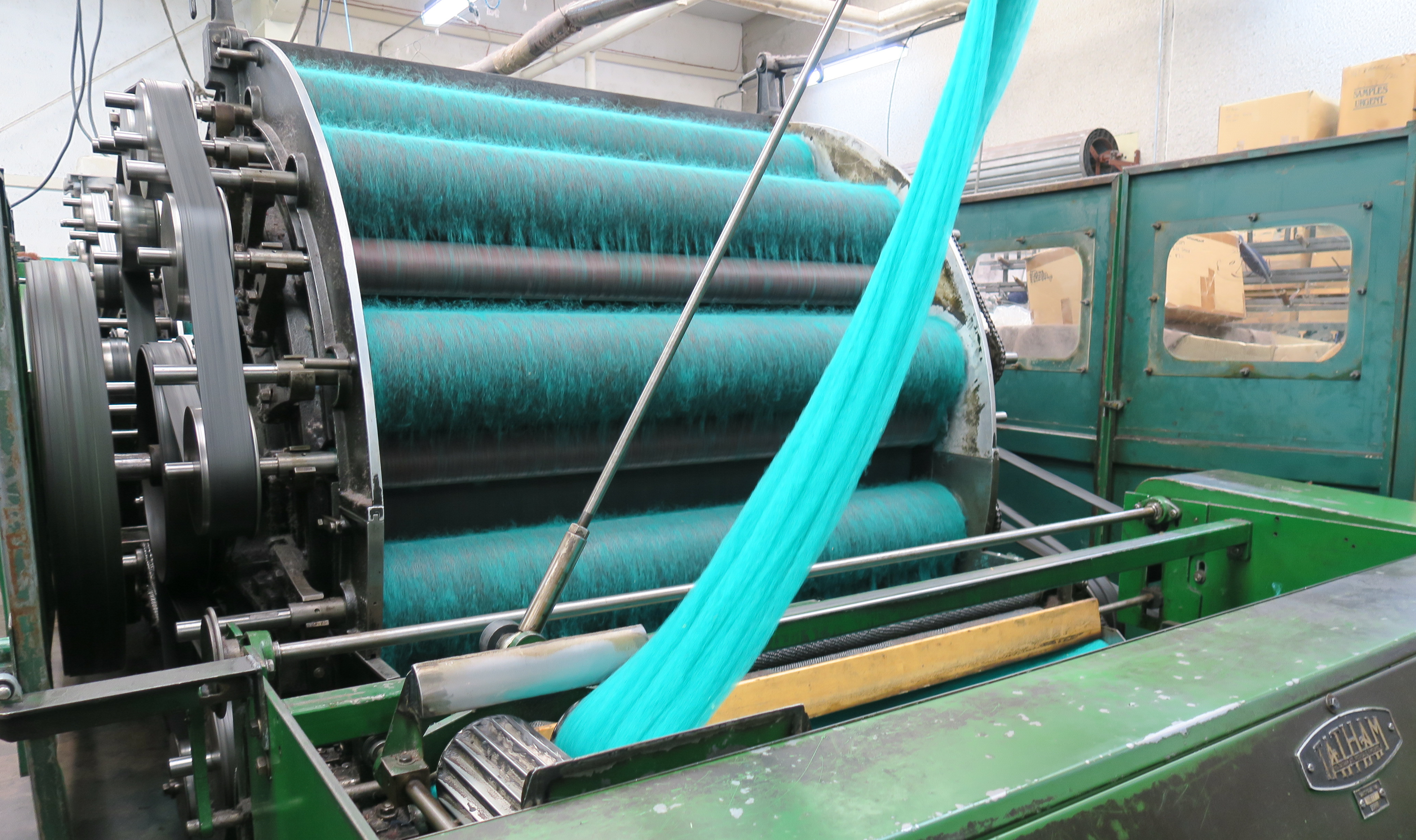|
Rock Mill Llandysul
Rock Mill Llandysul ( cy, Melin Wlân), in Capel Dewi, Llandysul, Ceredigion, is the last woollen mill in Wales to be powered by a water wheel. Location The Mill lies in the narrow valley of Afon Clettwr, a tributary of the River Teifi, on a minor road about south east of the church of St David in Capel Dewi. Capel Dewi is about east-north-east of Llandysul. Water is carried to the wheel along a short leat from a weir on the river. History During the Industrial Revolution the Teifi Valley became the centre of the Woollen industry in Wales, employing thousands of weavers, spinners, dyers, knitters, drapers and tailors. The river and its tributaries powered dozens of mills, and sheep in the surrounding grassland supplied fleeces to be made into woollen products. Rock Mill was built in the 1890s by the great grandfather of the present owner. The two-storey mill is built of stone, with flagstone floors and low ceilings. The mill has been operated continuously by the same family si ... [...More Info...] [...Related Items...] OR: [Wikipedia] [Google] [Baidu] |
Capel Dewi, Llandysul
Capel Dewi is a small village in the county of Ceredigion, Wales. The village lies in the Clettwr Valley mostly on the eastern bank of the River Clettwr, a tributary of the River Teifi. Capel Dewi is part of the community of Llandysul along with the settlements of Horeb, Pont-Siân, Pren-gwyn, Tregroes, Rhydowen Rhydowen is a small village in Ceredigion in south-west Wales. It has a population of about 347, of which around 200 are Welsh-speaking. The village hall A village hall is a public building in a village used for various things such as: United ... and the village of Llandysul itself. The village is one of two settlements in Ceredigion called Capel Dewi, the other being the smaller Capel Dewi near Aberystwyth. The village is home to several buildings of note, including the Rock Mill. Opened in 1890, the Rock Mill is a waterwheel powered woollen mill, the last commercial woollen mill remaining in Wales. Capel Dewi also has its own church, St David's Church, which ... [...More Info...] [...Related Items...] OR: [Wikipedia] [Google] [Baidu] |
Carding
Carding is a mechanical process that disentangles, cleans and intermixes fibres to produce a continuous web or sliver suitable for subsequent processing. This is achieved by passing the fibres between differentially moving surfaces covered with "card clothing", a firm flexible material embedded with metal pins. It breaks up locks and unorganised clumps of fibre and then aligns the individual fibres to be parallel with each other. In preparing wool fibre for spinning, carding is the step that comes after teasing. The word is derived from the Latin meaning thistle or teasel, as dried vegetable teasels were first used to comb the raw wool before technological advances led to the use of machines. Overview These ordered fibres can then be passed on to other processes that are specific to the desired end use of the fibre: Cotton, batting, felt, woollen or worsted yarn, etc. Carding can also be used to create blends of different fibres or different colours. When blending, the cardi ... [...More Info...] [...Related Items...] OR: [Wikipedia] [Google] [Baidu] |
Tourist Attractions In Ceredigion
Tourism is travel for pleasure or business; also the theory and practice of touring, the business of attracting, accommodating, and entertaining tourists, and the business of operating tours. The World Tourism Organization defines tourism more generally, in terms which go "beyond the common perception of tourism as being limited to holiday activity only", as people "travelling to and staying in places outside their usual environment for not more than one consecutive year for leisure and not less than 24 hours, business and other purposes". Tourism can be domestic (within the traveller's own country) or international, and international tourism has both incoming and outgoing implications on a country's balance of payments. Tourism numbers declined as a result of a strong economic slowdown (the late-2000s recession) between the second half of 2008 and the end of 2009, and in consequence of the outbreak of the 2009 H1N1 influenza virus, but slowly recovered until the COVID-19 ... [...More Info...] [...Related Items...] OR: [Wikipedia] [Google] [Baidu] |

